I got myself very surprised after I wrote this small code to compare .NET 4.5 and Java 8 performance in my computer:
class ArrayTest
{
public int[][] jagged;
public ArrayTest(int width, int height)
{
Height = height;
Width = width;
Random rng = new Random();
jagged = new int[width][];
for (int i = 0; i < height; i++)
{
jagged[i] = new int[width];
for (int j = 0; j < jagged[i][j]; j++)
{
jagged[i][j] = rng.Next(2048);
}
}
}
public int this[int i, int j]
{
get
{
return jagged[i][j];
}
set
{
jagged[i][j] = value;
}
}
public void DoMath(ArrayTest a)
{
for (int i = 0; i < Height; i++)
{
for (int j = 0; j < Width; j++)
{
this[i, j] *= a[i, j];
}
}
}
public int Height { get; private set; }
public int Width { get; private set; }
}
class Program
{
static void Main(string[] args)
{
Random rng = new Random();
const int loop = 10;
int width = 10000,
height = 10000;
ArrayTest a1 = new ArrayTest(width, height),
a2 = new ArrayTest(width, height);
Stopwatch sw = new Stopwatch();
sw.Start();
for (int i = 0; i < loop; i++)
{
a1.DoMath(a2);
}
sw.Stop();
Console.WriteLine("Time taken: " + sw.ElapsedMilliseconds);
Console.ReadKey();
}
}
Here is the Java version:
public class ArrayTest {
private int width, height;
private int[][] array;
public ArrayTest(int width, int height) {
this.width = width;
this.height = height;
array = new int[height][width];
Random rng = new Random();
for (int i = 0; i < height; i++) {
for (int j = 0; j < width; j++) {
array[i][j] = rng.nextInt(2048);
}
}
}
public int getWidth() {
return width;
}
public void setWidth(int width) {
this.width = width;
}
public int getHeight() {
return height;
}
public void setHeight(int height) {
this.height = height;
}
public int[][] getArray() {
return array;
}
public void doMath(ArrayTest a) {
for (int i = 0; i < height; i++) {
for (int j = 0; j < width; j++) {
array[i][j] *= a.getArray()[i][j];
}
}
}
}
public class Main {
public static void main(String[] args) {
// TODO Auto-generated method stub
final int loops = 10;
int width = 10000, height = 10000;
ArrayTest a1 = new ArrayTest(width, height),
a2 = new ArrayTest(width, height);
long start, end;
start = java.lang.System.currentTimeMillis();
for (int i = 0; i < loops; i++) {
a1.doMath(a2);
}
end = java.lang.System.currentTimeMillis();
System.out.println("Elapsed time: " + (float)(end - start));
}
}
In my computer this C# code is taking about 5200ms to run, and the Java version is taking about 2800ms(!!!). I was actually expecting that the .NET version would run faster (or at least close to) than Java, but got very surprised with this result.
Note: I ran the .NET version compiled in release mode, outside Visual Studio.
Can somebody explain this result? Is this really right? How could I rewrite this code so that the C#.NET version gets closer to the Java one in execution speed?
[edit]
Well, I know this is not a really valid benchmarking or a fair comparison, but how could I rewrite this code so that the C#.NET version gets closer to the Java one in execution speed? Tried in any forms (manipulating the jagged array directly, via a getter, etc), but the test ran even slower.
[edit 2]
Edited the test so that I have width and height = 500, and loop = 5000. Now I get about 6300ms for .NET version, and about 3700ms for Java version. ran the test multiple times for each version, of course.
[edit 3]
Just wrote a similar test using flat arrays instead of 2D arrays, and this time the .NET version runs equally or even faster than Java. So is that it? C#.NET's jagged arrays are just slower than Java's multidimensional arrays?

